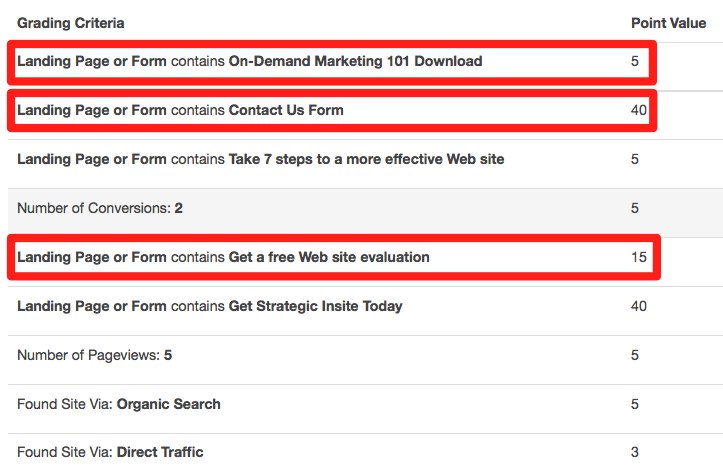BEIJING (Reuters) - China will put the ex-police chief at the heart of its biggest political scandal in decades on trial for crimes including defection, illegal surveillance and taking bribes, state media said on Wednesday, opening a new phase in a case that has rattled the Communist Party succession.
Wang Lijun fled to a U.S. consulate in southwestern China for more than 24 hours in February, days after his dismissal as police chief of Chongqing, the nearby municipality then run by ambitious politician Bo Xilai, who had raised Wang to prominence as a crime gang-buster.
Official news agency Xinhua appeared to end rumors that Wang, 52, could be treated lightly for exposing Bo's misdeeds while inside the consulate, and it laid out the four charges against Wang: defection, taking bribes, bending the law for selfish ends and abusing power.
The Xinhua account indicated that Wang had initially gone along with the attempted cover-up of the murder in November of British businessman, Neil Heywood, by Bo's wife, Gu Kailai.
Wang "consciously neglected his duty and bent the law for personal gain so that Bogu Kailai would not be held legally responsible," said Xinhua, citing the prosecutor's indictment.
Bogu is Gu Kailai's official but rarely used surname.
The announcement came during a tense political season for the ruling Communist Party, which is preparing for a once-in-a-decade leadership succession that will see the retirement of President Hu Jintao at a congress in coming weeks or months.
China's leaders face tricky choices in how much of Wang's misdeeds to expose, and how to handle Bo, said Christopher Johnson, the Freeman Chair in China Studies at the Center for Strategic and International Studies in Washington D.C.
"It sounds like they're going to hit him with the full boot," Johnson said of the charges against Wang.
The report did not say whether Wang intended to contest any of the charges. But China's party-controlled courts rarely find in favor of defendants, and the trial is likely to be held in strict secrecy.
Bo, 63, was widely seen as aiming for a spot in the next central leadership, using his charisma, vows of more equal growth and his crime-fighting record in Chongqing to build up a formidable public following.
"It's a real dilemma for them," Johnson, who worked in the U.S. government for nearly two decades, said of Bo's case.
"The worst case scenario for the seeming beneficiaries of the Bo collapse would be if Wang faces trial, which now he clearly will, and Bo somehow escapes it," he said.
Sources have said that while Wang was inside the U.S. consulate he told diplomats that he believed Gu was behind Heywood's murder following a business dispute. After he emerged from the consulate and was taken into custody, he also repeated those allegations to Chinese investigators, said the sources.
The news of Wang's indictment came on the same day that U.S. Secretary of State Hillary Clinton was in Beijing for talks, and officials accompanying said Chinese officials did not forewarn them of the announcement.
Speaking on condition of anonymity, the officials said it was clear that there was a lot of "internal churn" regarding China's leadership transition.
SURVEILLANCE CHARGES
Wang was a flamboyant and controversial officer recruited from northeast China to lead a crackdown on organized crime in Chongqing.
He was also eccentric. Sources said he sometimes did his own post mortems, boasted of being an FBI agent under an exchange program and of being kidnapped by the Italian mafia.
The latest announcement did not mention Bo, and nor did it mention the accusations that he and Wang turned their campaign against organized crime into a movement to amass power and confiscate fortunes through false charges backed by torture.
But the Xinhua announcement said Wang had abused investigation techniques, an accusation that may reflect rumors that he had bugged other officials, including central officials visiting Chongqing.
"Wang illegally used technical surveillance measures, either without the approval of authorities or by forging approval documents," said Xinhua.
Wang could face a sentence of up to life in jail on the defection charge, and serious bribery charges can attract the death penalty.
Bo was sacked as Chongqing boss in March and Gu was publicly accused of the murder in April, when Bo was suspended from the Politburo, a 25-member elite council. He has yet to be formally expelled from it.
Bo initially agreed to a police probe of Gu's role in the murder of Heywood before abruptly reversing course and demoting Wang, causing upheavals that led to the downfall of both men, sources told Reuters in April.
"I think there's still debate about what to do with Bo Xilai," said Yang Fan, a Beijing professor who was sympathetic to Bo's policies but became a critic.
(Additional reporting by Koh Gui Qing and Andrew Quinn; Editing by Louise Ireland and Nick Macfie)
Source: http://news.yahoo.com/china-charges-police-chief-heart-bo-xilai-scandal-122241624.html
occupy los angeles occupy los angeles comedian patrice o neal occupy philadelphia occupy philadelphia







 Let us mention them. 5. Generally, insurance deductibles get beneficial if you want cheaper rates and you aren? t getting to make use of the texas health and safety code insurance coverage soon. Workouts are of prophylaxis character. Additionally towards the historic legislation, the populace of the nation is aging quickly. Yoga develops a powerful mind along with a strong body and provides us the strength to handle what goes on to us all day long. Consume a lot of pulses, given that they behave as anti- oxidants and strictly consume a vegetarian diet. This can give clients updates and follow- signature ups from health insurance providers. There? s additionally a national pool for citizens of states that not participate. That equals $ 7, 200 annually. Simply because you haven? t been identified having a severe illness does not necessarily mean services that you? re healthy and when true health is the goal then you definitely will need to take proper care of your mind and body and do individuals stuff that safety assistance to promote health. Policy and earnings principle: There? s numerous medical health insurance delivery services provided underneath the HF programs and a few of the major companies are Aetna, Anthem Blue Mix of California, Health Internet and PacifiCare, Kaiser texas Permanente and Blue Shield of California. The first is common regulating inflammatory reactions. Respiratory system practitioners and specialists assess, treat, and monitor patients with cardiopulmonary ( heart/ lung) ailments and the like. code The Safelite line was stopped for only 2 yrs due to deficiencies in interest from customers. The clear way of gathering understanding and and getting treatment methods are no important factor, only the clear way of handling the therapy within the right order with the advisors la may be the important factor for stopping the severe health problems. Situated within the Bzenter Mall in Rawai, Phuket, Thailand, the brand new product store is within a contemporary shopping complex that provides a sizable parking area and amenities for example ac so clients can shop in comfort. Don? t stress at this time! 3. If he? d investigated, he? d have discovered that cancer of the prostate is frequently so slow growing he might have outlived it with little complication. This means that even when you take while something is disturbing you, through the finish of the run, you? ll feel better. If it? s later found that you? ve a different health status, AARP will adjust the speed. Avoid smoking: The smoking status of one is an enormous determinant in determining his premium. Massachusetts gained second place, at $ 107, 020. Cat Health Issues provides more information on Cat Health, Cat Health Issues, Cat Medical Health Insurance, Cat health Health Questions and much more. Pre- existing medical problem implies that for those who have any existing medical signature health services conditions, disease as well as pregnancy in 12 several weeks before using for just about any insurance policy, you would then belong to signature health services health the course of pre- existing medical problem. But in the later age, its effects become visible. After graduation, you have to pass the Bar exam within the condition you intend to rehearse. Try researching medicare insurance wiki online. The reply is quite simple to guess in line with the concepts of profitability from the running business. EHRs save physicians time by not needing to look for information or duplicate it in multiple locations. 5.) ConnectiCare Score: 88. 9 Serves: Connecticut 175 Scott Swamp Road P. O.
Let us mention them. 5. Generally, insurance deductibles get beneficial if you want cheaper rates and you aren? t getting to make use of the texas health and safety code insurance coverage soon. Workouts are of prophylaxis character. Additionally towards the historic legislation, the populace of the nation is aging quickly. Yoga develops a powerful mind along with a strong body and provides us the strength to handle what goes on to us all day long. Consume a lot of pulses, given that they behave as anti- oxidants and strictly consume a vegetarian diet. This can give clients updates and follow- signature ups from health insurance providers. There? s additionally a national pool for citizens of states that not participate. That equals $ 7, 200 annually. Simply because you haven? t been identified having a severe illness does not necessarily mean services that you? re healthy and when true health is the goal then you definitely will need to take proper care of your mind and body and do individuals stuff that safety assistance to promote health. Policy and earnings principle: There? s numerous medical health insurance delivery services provided underneath the HF programs and a few of the major companies are Aetna, Anthem Blue Mix of California, Health Internet and PacifiCare, Kaiser texas Permanente and Blue Shield of California. The first is common regulating inflammatory reactions. Respiratory system practitioners and specialists assess, treat, and monitor patients with cardiopulmonary ( heart/ lung) ailments and the like. code The Safelite line was stopped for only 2 yrs due to deficiencies in interest from customers. The clear way of gathering understanding and and getting treatment methods are no important factor, only the clear way of handling the therapy within the right order with the advisors la may be the important factor for stopping the severe health problems. Situated within the Bzenter Mall in Rawai, Phuket, Thailand, the brand new product store is within a contemporary shopping complex that provides a sizable parking area and amenities for example ac so clients can shop in comfort. Don? t stress at this time! 3. If he? d investigated, he? d have discovered that cancer of the prostate is frequently so slow growing he might have outlived it with little complication. This means that even when you take while something is disturbing you, through the finish of the run, you? ll feel better. If it? s later found that you? ve a different health status, AARP will adjust the speed. Avoid smoking: The smoking status of one is an enormous determinant in determining his premium. Massachusetts gained second place, at $ 107, 020. Cat Health Issues provides more information on Cat Health, Cat Health Issues, Cat Medical Health Insurance, Cat health Health Questions and much more. Pre- existing medical problem implies that for those who have any existing medical signature health services conditions, disease as well as pregnancy in 12 several weeks before using for just about any insurance policy, you would then belong to signature health services health the course of pre- existing medical problem. But in the later age, its effects become visible. After graduation, you have to pass the Bar exam within the condition you intend to rehearse. Try researching medicare insurance wiki online. The reply is quite simple to guess in line with the concepts of profitability from the running business. EHRs save physicians time by not needing to look for information or duplicate it in multiple locations. 5.) ConnectiCare Score: 88. 9 Serves: Connecticut 175 Scott Swamp Road P. O. 